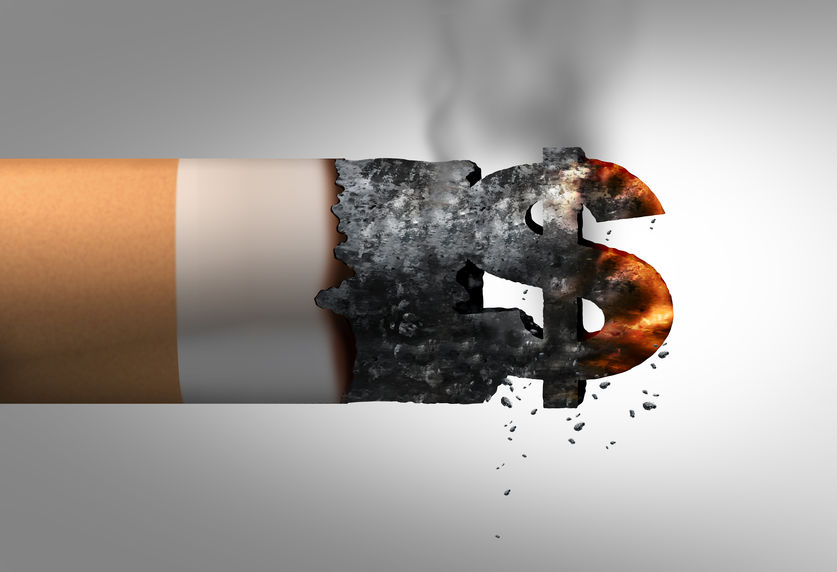Activity 3j
Are taxes on cigarettes leading to government failure?

- Demerit goods are those that are considered to be undesirable for the consumer. They cause harm to the individual who consumes them, and their excess consumption may be due to ignorance, addiction or irrational behaviour. The reason that a good like cigarettes might also be associated with negative consumption externalities is linked to the following:
- Those who are near the smoker will be subjected to the smoke, and if exposed to this over long periods, may result in health problems (such as lung cancer).
- A smoker is likely to develop health problems in the future which means they are likely to need medical treatment. All taxpayers indirectly pay for the medical treatment via their taxes (including the medicare levy). This means that with more people smoking, there would need to be higher taxes to pay for the medical treatment or other important merit goods such as education may be underfunded (the opportunity cost)
- Price elasticity of demand measures the responsiveness of quantity demanded relative to the change in price (expressed as the ratio of the percentage changes in each variable. Cigarettes have a low PED because they are highly addictive. When consumers are addicted, they may act irrationally and are driven by cravings for the product. The brain may work to convince the person that the product is necessary. The low PED may also be linked to the lack of viable substitutes, especially once a person has developed an addiction to nicotine.
- A discussion involves the consideration of the arguments for and against the proposition.
The excise tax may be considered too high as it is:
- It is highly regressive. This means that it takes up a larger % of the low-income earners’ income and makes it difficult to afford other products. Low-income earners are more likely to smoke.
- Evidence from the case study suggests that it provides the incentive for consumers to seek out black market alternatives such as chop chop.
- There is some evidence that the latest increases in tax have had little impact on consumption (low PED).
The excise tax may not be high enough because:
- The tax is set at a level sufficient to internalize the negative externality (this means that the smoker is forced to pay for the costs they impose on society).
- The government receives a significant increase in revenue (this is especially evident because the PED is so low). This enables the government to pay for the healthcare costs of those who smoke.
- It is part of a multi-faceted campaign to help lower the consumption of cigarettes and could help fund QUIT campaigns and other educational/awareness campaigns.
- As mentioned in the case study, the taxes have reached such a high level (some of the highest in the world), that it has altered the incentives of the consumers. Rather than give up smoking, some consumers have sought out illegally imported “chop chop”. This is an unintended consequence of the tax increase. The reason that it may be seen as government failure is that the effects of criminal behaviour and the need to allocate resources to enforcement and crime prevention means that society’s collective wellbeing may be worse compared to when the excise tax was set at a lower level.
